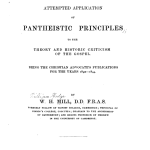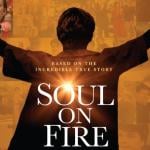My official “wheelhouse” is Paul (I have a commentary on 1-2 Thessalonians in the editing process, and I am working on commentaries on Philippians, Galatians, and 2 Timothy over the next few years) -but I “dabble” in the Gospels when I get a chance. I am making progress on a commentary on the Lord’s Prayer. So, excited to have been plunging into some really interesting recent books about the Gospels and Jesus.
 Kim Huat Tan, Mark (New Covenant series; Wipf & Stock). The New Covenant series (editors Mike Bird and Craig Keener) continues to fill up, with a recent volume on Mark by Tan who serves as professor and dean at Trinity Theological College, Singapore. This is a very good (though also very traditional) reading of Mark. Tan leans in favor of viewing John Mark as author, with Peter as key source. Tan believes that the occasion of the writing of Mark may have been the onset of persecution; the purposes may have been many, including pastoral care for a beleaguered community, the passing down of apostolic teaching, and possibly counteracting false teaching (see 7). As I mentioned, Tan’s work is conventional, but he seems very well-acquainted with Markan scholarship. I am glad to see good scholarship coming from Asia and I appreciate Bird, Keener, and Wipf & Stock supporting global scholarship in this way.
Kim Huat Tan, Mark (New Covenant series; Wipf & Stock). The New Covenant series (editors Mike Bird and Craig Keener) continues to fill up, with a recent volume on Mark by Tan who serves as professor and dean at Trinity Theological College, Singapore. This is a very good (though also very traditional) reading of Mark. Tan leans in favor of viewing John Mark as author, with Peter as key source. Tan believes that the occasion of the writing of Mark may have been the onset of persecution; the purposes may have been many, including pastoral care for a beleaguered community, the passing down of apostolic teaching, and possibly counteracting false teaching (see 7). As I mentioned, Tan’s work is conventional, but he seems very well-acquainted with Markan scholarship. I am glad to see good scholarship coming from Asia and I appreciate Bird, Keener, and Wipf & Stock supporting global scholarship in this way.
 Stephen Wright, Jesus the Storyteller (WJK). This book is remarkable even if just for the fact almost no one has thought of doing this before – the study of Jesus’ parables is so convoluted, has anyone thought to analyze Jesus’ story-parables from the perspective of narrative criticism? Wright knows his way around parables-scholarship exceptionally well and offers a helpful rundown of the state of the discussion. Here, he puts several approaches/methods together to take a fresh look at the parables – orality, memory, testimony, performance, as well as reception history and of course narrative criticism. He examines such elements of Jesus’s stories as setting, characterization, point of view, and plot. From this perspective, he is able to identify interesting repeated narrative themes: obstacles in life, violence, contrasting characters, embeddedness of hierarchy, reversal of fortunes, etc. Perhaps my favorite aspect of his book is the implications Wright draws regarding what “Jesus as storyteller” tells us about Jesus himself. Drawing from the work of Beutner and Funk, Wright acknowledges that there is a playfulness and liveliness to the way Jesus taught – he was a kind of entertainer! He preferred to share his message about the kingdom in a very contextualized and stylistic manner. He was savvy! This is a very insightful book.
Stephen Wright, Jesus the Storyteller (WJK). This book is remarkable even if just for the fact almost no one has thought of doing this before – the study of Jesus’ parables is so convoluted, has anyone thought to analyze Jesus’ story-parables from the perspective of narrative criticism? Wright knows his way around parables-scholarship exceptionally well and offers a helpful rundown of the state of the discussion. Here, he puts several approaches/methods together to take a fresh look at the parables – orality, memory, testimony, performance, as well as reception history and of course narrative criticism. He examines such elements of Jesus’s stories as setting, characterization, point of view, and plot. From this perspective, he is able to identify interesting repeated narrative themes: obstacles in life, violence, contrasting characters, embeddedness of hierarchy, reversal of fortunes, etc. Perhaps my favorite aspect of his book is the implications Wright draws regarding what “Jesus as storyteller” tells us about Jesus himself. Drawing from the work of Beutner and Funk, Wright acknowledges that there is a playfulness and liveliness to the way Jesus taught – he was a kind of entertainer! He preferred to share his message about the kingdom in a very contextualized and stylistic manner. He was savvy! This is a very insightful book.
 Richard Bauckham, Gospel of Glory (Baker). Bauckham is writing a very big commentary on the Fourth Gospel, but in the meantime he has been producing all kinds of works on the history and interpretation of John and the Jesus tradition. This is his latest installment with chapters on themes such as “Individualism,” Divine and Human Community, Glory, Cross/Resurrection/Exaltation, Dualisms, etc. This is not a comprehensive “theology of John,” but more of a selection of unique theological themes in John. The impressive thing about Bauckham is that he is always wanting to find new paths into old topics. For example, he eschews a formal discussion of the death/resurrection of Jesus in chapter 4. He tackles this topic by discussing the interlocking themes of love, life, glory, and truth. This, I agree, represents John’s interests well. Take up and read!
Richard Bauckham, Gospel of Glory (Baker). Bauckham is writing a very big commentary on the Fourth Gospel, but in the meantime he has been producing all kinds of works on the history and interpretation of John and the Jesus tradition. This is his latest installment with chapters on themes such as “Individualism,” Divine and Human Community, Glory, Cross/Resurrection/Exaltation, Dualisms, etc. This is not a comprehensive “theology of John,” but more of a selection of unique theological themes in John. The impressive thing about Bauckham is that he is always wanting to find new paths into old topics. For example, he eschews a formal discussion of the death/resurrection of Jesus in chapter 4. He tackles this topic by discussing the interlocking themes of love, life, glory, and truth. This, I agree, represents John’s interests well. Take up and read!
 Joel B. Green, Conversion in Luke-Acts (Baker). This is a masterful study of the theme of “conversion” from a senior scholar of Luke-Acts. Green examines this subject particularly with insight from modern cognitive studies (see esp chapter 2). He urges here that biblical scholars have, for too long, interpreted conversion exclusively in terms of the life of the interior only. Green, with characteristic theological and exegetical finesse, makes a strong case for this holistic definition of conversion in Luke-Acts:
Joel B. Green, Conversion in Luke-Acts (Baker). This is a masterful study of the theme of “conversion” from a senior scholar of Luke-Acts. Green examines this subject particularly with insight from modern cognitive studies (see esp chapter 2). He urges here that biblical scholars have, for too long, interpreted conversion exclusively in terms of the life of the interior only. Green, with characteristic theological and exegetical finesse, makes a strong case for this holistic definition of conversion in Luke-Acts:
Converts are those who, enabled by God, have undergone a redirectional shift and now persist along the Way with the community of those faithfully serving God’s eschatological purpose as this is evident in the life, death, and exaltation of the Lord Jesus Christ, and whose lives are continually being formed through the Spirit at work in and through practices constitutive of this community” (see 163).
I am particularly appreciative of the inclusion of both human and divine agency in understanding Luke’s articulation of conversion. Also, the communal dimensions are especially appropriate to Luke’s perspective, but sometimes screened out by modern readers.











